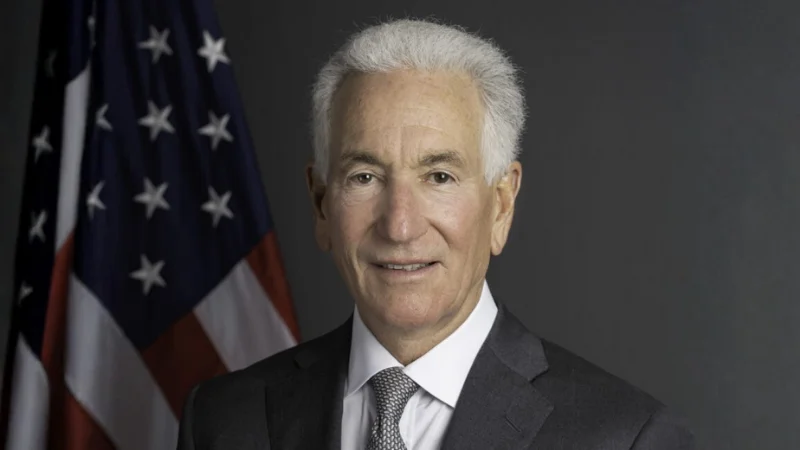The recent ceasefire in Gaza has brought an end to months of conflict, with hostages now released and both Israelis and Palestinians looking ahead to a period of calm. In an op-ed, Charles Kushner, U.S. Ambassador to France, reflected on the significance of this development, drawing parallels to the Abraham Accords.
Kushner stated, "Hearing the news, I felt the same emotion I had for the announcement of the Abraham Accords, when my son Jared helped break down barriers once thought impossible. Once again, America has delivered real results."
He credited the outcome to the efforts of President Donald J. Trump, emphasizing a results-oriented approach. "This peace emerged from the tireless work and leadership of a President who deals in results, not rhetoric," Kushner wrote.
Kushner outlined two guiding principles set by President Trump: "First, Israel has an absolute right to defend itself — not a conditional one, not subject to foreign approval. Second, the Arab nations that choose stability and prosperity over extremism are not America’s clients, but America’s honored partners. Rather than distance himself from our allies, he has drawn them closer — and forged new ones."
He argued that this approach led to a shift in diplomatic dynamics. "That clarity reshaped the diplomatic map. While others debated language, Washington built leverage. The President developed a plan, got buy-in from the entire world, and then closed the deal."
According to Kushner, the ceasefire resulted in Hamas agreeing to release all hostages and Israel accepting a truce that maintains its right to self-defense. He added that international governments will contribute to Gaza’s reconstruction as a means to promote stability in the region.
"This is the Trump Doctrine at work: support Israel one hundred percent, support the Arab world one hundred percent, and never confuse moral clarity with moral distance," Kushner stated.
He criticized previous diplomatic efforts for equating balance with virtue and argued that effective peace requires a firm stance against violence. "Too many past diplomats mistook 'balance' for virtue — as if peace required splitting the difference between democracy and terror. President Trump rejected that illusion. He understood that genuine peace cannot come from equidistance, but from standing firmly with those who reject violence and honoring those who seek coexistence. While others moralized, America mobilized. While others performed outrage, America performed diplomacy."
Kushner pointed to the Abraham Accords and other regional policies as examples of this pragmatic approach. "It is the same realism that produced the Abraham Accords — pragmatic partnerships built on trust, not lectures. The same logic that dismantled ISIS and contained Iran’s proxies has now brought quiet to Gaza."
He stressed that the next phase involves rebuilding Gaza and fostering reconciliation, with an emphasis on reform among Palestinian leaders and continued American support for Israel’s security.
"Now begins the harder work: turning calm into reconstruction, and reconstruction into reconciliation. Gaza must be rebuilt — but not as a base for militants. The Palestinian people deserve schools, jobs, and leadership untainted by terror. Palestinian leaders must reform. Arab and European partners will have America’s full backing, provided they strengthen moderation, not extremism."
Kushner concluded by reaffirming the U.S. commitment to Israel: "Israel, for its part, can count on what it has always had from President Trump: an unshakable American commitment to its security and legitimacy."
He ended the op-ed by stating, "This peace is not a miracle of circumstance; it is a product of will. It shows that firmness and fairness are not opposites but allies — that peace is born not of hesitation, but of conviction. Blessed are the peacemakers."

